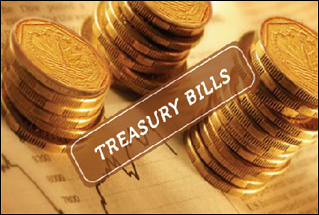Treasury Bills (T-Bills)
What are Treasury Bills (T-Bills)?
● Treasury Bills (T-Bills) are short-term government securities issued by the central government to raise funds. They are considered one of the safest investments as they are backed by the government and have a fixed maturity period.

How T-Bills Work:
● When you invest in T-Bills, you are essentially lending money to the government for a specific period, typically ranging from a few days to one year. T-Bills are sold at a discount to their face value and do not pay periodic interest. Instead, the investor earns a return by receiving the face value at maturity, which is higher than the discounted purchase price.
Types of T-Bills:
● T-Bills come in various types, classified by their maturity periods, such as 91-day, 182-day, and 364-day
T-Bills. Each type has its own characteristics, and the interest rates on T-Bills are determined through competitive bidding at auctions conducted by the central bank.
Benefits of Investing in T-Bills:
● T-Bills offer several advantages. They are considered extremely low-risk investments as they are backed by the government. T-Bills provide a secure way to preserve capital while earning a modest return. They are highly liquid, allowing investors to easily buy or sell them in the secondary market.
Key Considerations Before Investing in T-Bills:
Before investing in T-Bills, consider factors such as the maturity period, auction dates, and prevailing interest rates. Monitor the government's fiscal and monetary policies as they can influence T-Bill rates. Assess your investment goals, liquidity needs, and desired investment duration to choose the most suitable type of T-Bill.
Returns and Numbers:
The return on T-Bills is primarily determined by the difference between the discounted purchase price and the face value received at maturity. As T-Bills do not pay periodic interest, the return is effectively the difference between the purchase price and the face value. For example, if you purchase a 91-day T-Bill with a face value of $10,000 at a discounted price of $9,900, your return would be $100 (face value - purchase price). The actual return percentage can vary based on prevailing market rates and the discount offered at the auction.
Risks Associated with T-Bills:
T-Bills are generally considered very low-risk investments. However, there are a few factors to be aware of. Interest rate risk is a concern, as changes in interest rates can impact the value of T-Bills in the secondary market before maturity. Additionally, T-Bills are subject to inflation risk, where the purchasing power of the fixed return may be eroded by inflation over time.
Tax Implications of T-Bills:
The interest income earned on T-Bills is generally taxable as per the investor's income tax slab. Some T-Bills may offer tax benefits, such as tax-exempt status or specific tax treatment, depending on the regulations in the respective country. Consult with tax professionals to understand the tax treatment of T-Bills based on your specific circumstances.
Professional Advice and Due Diligence:
Investing in T-Bills requires careful consideration. Stay updated on auction announcements and auction results to make informed investment decisions. Consider seeking advice from financial professionals who can provide insights and help assess the suitability of T-Bills for your investment needs.
